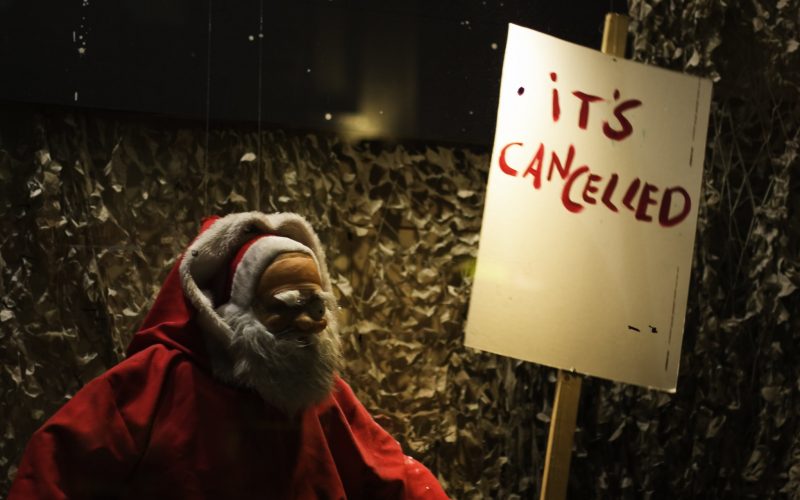With many live events postponed or cancelled and no make-up dates in sight, event producers have lost millions, sometimes even billions, of advertising and sponsorship dollars in this pandemic year. Consider huge brands that we frequently see spending mountains of marketing dollars in concert arenas, sports stadiums, and award show programming: To what degree does force majeure excuse those commitments? How will live events and their vendors, sponsors, and advertisers adapt to the current climate?
Force majeure or “Act of God” clauses alter obligations of parties in a contract when an extraordinary event or circumstance prevents one or all parties from satisfying their obligations and provide an excuse for nonperformance.1 In the context of staging a live event, a force majeure circumstance might include a fire that prevents a venue from making the space available for the event.2 Over time, the concept of impossibility of performance has broadened to encompass “impracticability,” allowing parties to void a contract, even if performance is not literally impossible, if unforeseen events make it unreasonably expensive or difficult to fulfill.3
A party’s ability to claim relief for a force majeure event depends on the terms of the contract, and the force majeure provision in particular. So, when the coronavirus pandemic stopped live events, the legal community started closely examining force majeure clauses in vendor and sponsorship contracts. Many such clauses neither expressly mention pandemics, nor address remedies or contract reformation after a force majeure event.
Pandemic-related event cancellations are now starting to generate legal rulings. In NetOne, Inc., v Panache Destination Management, Inc., the host of a four-day corporate event in Hawaii was forced to cancel due to Covid-19 and then sued a vendor of transportation, touring, entertainment, and similar event services for return of payments already made under two contracts.4 While the court agreed that the pandemic triggered the contracts’ force majeure clauses, it ruled in favor of the vendor, stating, “Nowhere in the force majeure provisions does it say that, if the contracts are terminated due to a qualifying event, the non-terminating party must return all deposits made…[t]he provisions are simply silent in that regard.”5 The court noted that the vendor had already spent considerable time and money on its performance of the contracts prior to the pandemic cancellation.6 This ruling suggests that force majeure clauses require greater specificity to cover this unprecedented time, creating significant uncertainty for standard sponsorship and event contracts from 2020.
Thus, as sports leagues such as the NBA start their new seasons, the value of venue advertising and sponsorship contracts, and the assets to be delivered, are all up for renegotiation.7 Further, the pandemic may require leagues to loosen restrictions on where they find sponsorship dollars.8 The NBA, for example, is reconsidering bans on sponsorships pertaining to gambling, hard alcohol, and sports betting in an effort to boost lost in-arena ad revenue.9 Additionally, players now have branded logos on practice jerseys, offering a limited, but nonetheless additional route of exposure for sponsors.10
Aside from creating new revenue streams in advertising and sponsorship contracts, negotiators must revisit boilerplates to mitigate risk and protect profit. First, drafters should specify that a pandemic is a force majeure event, although the current Covid-19 pandemic is no longer an unforeseen circumstance that would trigger the clause.11 Second, drafters should consider all contingencies in the event the clause is triggered. This might include how partial performance will be addressed or whether postponement due to an uncontrollable and unforeseen circumstance will affect the contract’s terms.12 Since many of the pandemic shutdowns were part of government orders and their impact is felt so widely, it may be within the government’s interest to have an enforceable policy or regulation that applies broadly across all businesses to promote equity and fairness and resolve issues related to contracts with vague enforcement provisions in force majeure clauses with consistency. Legislation of this type may prevent over-encumbering the court docket by resolving many potential cases with these issues. Further, variables that factor into the determination of excuse or suspension of contract nonperformance often rely on vague issues of assumptions, foreseeability, causation, and impossibility. Clearly defined terms of contract performance excuses or suspensions due to the effects of this pandemic can fix issues of ambiguity and facilitate justice in these instances. However, this would need to be done carefully as not to interfere with the free market.
In a world where staging live events is more complicated than ever, proper recourse is critical when unforeseen events occur and interrupt contract fulfillment. It is reasonable to predict that the pandemic will affect how contracts are negotiated and drafted for years to come as force majeure clauses are more scrutinized, negotiated, and thought out in the future.
Written by: Angela Anastasi & Joseph Cairo
Edited by: Melissa Ronan & Taylor Sandella
1 Beardslee v. Inflection Energy, LLC., 31 N.E.3d 80, 81-82 (N.Y. 2015).
2 Id.
3 Corbin on Contracts: Force Majeure and Impossibility of Performance Resulting From COVID-19 § 2.06 (Commercial Impracticability)
4 NetOne, Inc. v. Panache Destination Mgmt., Inc., No. 20-cv-00150-DKW-WRP (D. Haw. Oct. 28, 2020).
5 Id.
6 Id.
7 Id.
8 Staff, NBA Poised to Loosen Sponsorship Restrictions to Boost Team Revenues. Sportsbusiness, 10/9/2020.
9 Id.
10 Id.
11 NetOne, Inc. v. Panache Destination Mgmt., Inc., D. Haw., (June 5, 2020).
12 Corbin on Contracts: Force Majeure and Impossibility of Performance Resulting From COVID-19 § 5.01 (Frustration of Purpose Justifying Nonperformance).




